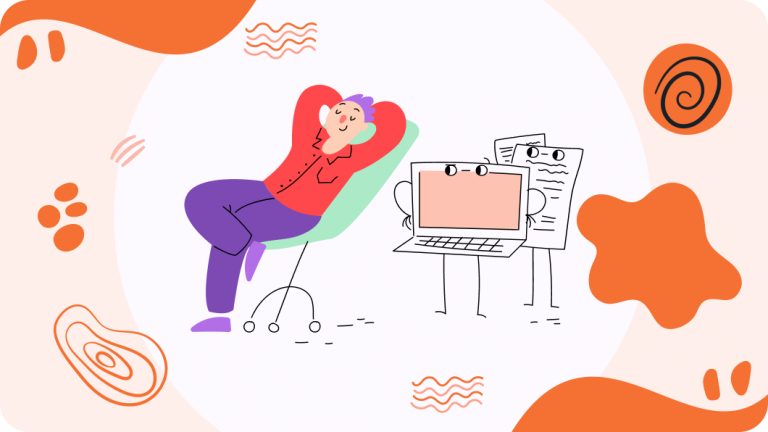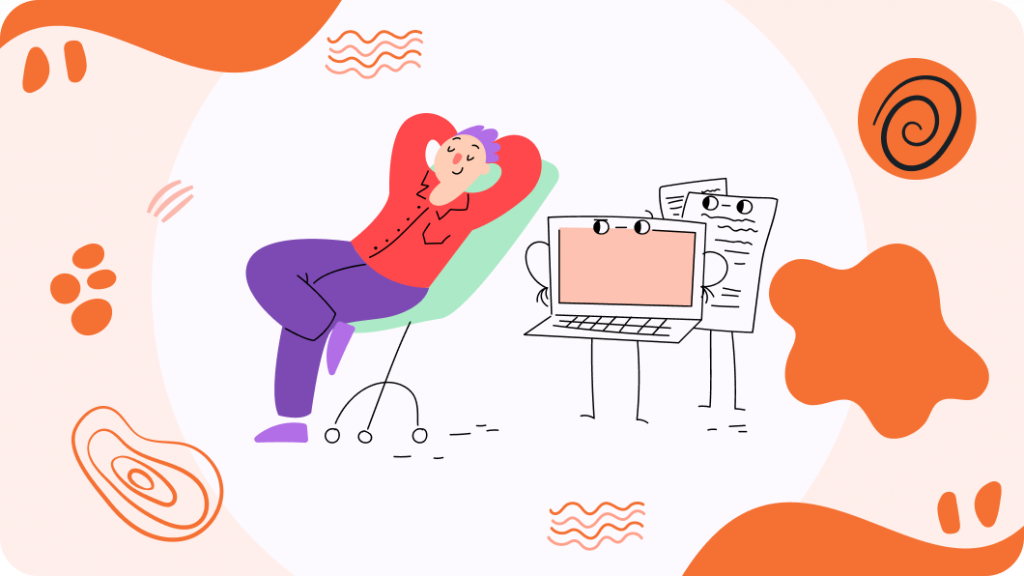BY Taino Bendz
Lower your stress, sleep better and feel better
Some estimates claim that a human today is exposed to as much data & impressions in a single day as someone in the 15th century would be in their entire lifetime!
Digital technology has exponentially increased the amount of information that is both sent out and received, and our brains run on high alert with the constant stream of emails, messages, social media updates, news reels, in video, audio and image form.
Countless studies point to the effect that an overuse of technology can have on sleep, stress, mood, anxiety, and depression.
In this piece you will learn how digital tech affects your mental health, and how you can improve in simple ways.
“Overusing phones is associated with stress, anxiety, and poor sleep quality, whereas moderate use has health benefits.”
Psychology Today, 2022
Let us start with a reflection exercise
I am giving you two options, a quick one, and one in-depth.
A quick assessment:
- Think about the digital technology you are using in your life.
- Consider in what ways you feel like it improves your mental health. E.g. positive social connections, mental health apps, self-help tools
- In what ways do you feel like it affects your mental health negatively? E.g. sleep issues, stress, anxiety, FOMO, social comparison, bullying, loneliness.
- What patterns are there in your usage? What activities improve your mental health, and which affect it negatively?
An in-depth mapping:
- Journal your activities.
As you go through your day, write down what activities you do with digital tech (e.g. social media, work, entertainment, communication). - Do an emotional and physical check in.
Write down how you felt before, during, and after using digital devices? (e.g., anxious, happy, relaxed, tired).
Note any physical sensations (e.g., eye strain, headaches, tension). - Consider the context and consequences
What were you doing before you reached for your device? What prompted you to use it?
How did your digital use affect your activities, mood, or interactions with others? Did it help or hinder your tasks and relationships? - Reflect on Patterns
At the end of the day, review your entries and look for patterns. Ask yourself:When do I feel most and least positive about my digital use?
Are there specific apps or activities that consistently impact my mood or energy levels?
How does my digital use affect my sleep, productivity, and interactions with others?
Why does tech affect our mental health?
Digital technology affects our mental health due to several interconnected factors, rooted in how our brain works, and we interact with and respond to digital environments. One of the main reasons is overstimulation and information overload, where frequent notifications from apps create a constant state of distraction, leading to reduced attention spans and increased stress levels. One study even found that office workers with their email program open had a constantly higher heart rate throughout the day! It is the same mechanism when we constantly check our phone for messages, notifications, social media updates.
Information overload comes from social media, news, email, messaging apps, as well as games, and is a very common effect, even if many of us are unaware of it. Our brains are simply not made to handle these amounts of information with the constant dopamine release.
Another common effect is sleep disruption which is caused by blue light exposure that interferes with the production of the sleep regulating hormone melatonin. Usage of our screens in the evenings can increase the time it takes for us to fall asleep, as well as affect our sleep patterns and leave us waking up less rested. Sleep disturbances have associated mental health issues like anxiety and depression.
Social comparison and inadequacy, cyber-bullying, compulsive behavior, isolation and loneliness, learning & cognitive impact: the list of potential effects can be made long. The important thing is to understand that digital technology does affect our mental health; consider how it is affecting you; and do something about it.
What can we do to improve our mental health?
There are heaps of simple ways to improve our mental health by changing our tech habits. In one study where all participants used their phone a lot, they were requested to turn off their phones one hour before bedtime for one week. The result?
“Of course, we knew that it would result in some improvement of happiness and well-being, but the findings surprised even us.”
Jolanta Burke Ph.D., RSCI University of Medicine and Health Sciences
It turns out that the simple change of switching off phones before bed significantly improved participants’ well-being and quality of life within just a week! This practice enhanced life satisfaction, happiness, and physical health, reduced phone addiction and increased the participants’ sense of control. Improved sleep quality was a key factor but participants also experienced reduced anxiety and gained more personal time, engaging in activities like reading, reflecting, and preparing for the next day. Enhanced relationships, including deeper connections and improved sex life, were also noted. With all the positive impacts of this simple change over 90% decided to continue the habit post-experiment.
This goes to show that small steps can make a big difference!
Here are 10 different ways you can improve your mental health:
- Turn off your phone an hour before bedtime and keep it off all night
(get an alarm clock if you have to!)
- Find non-tech hobbies
The reduction of tech use is much easier and pleasant if you find things to fill up your newly freed up time with.
- Create tech-free zones
Make certain areas of your home, like the dining room, tech-free to encourage personal interactions
- Reduce your news intake
Think about how you really want to consume news and try to balance staying up to date with not getting overwhelmed.
- Do a digital detox
Whether an hour, a day, or a weekend, try a period where you don’t use your devices. Daunting at first but this can give you a sense of control and reduce your feeling of dependance.
- Clean up your feed
Follow positive content and unfollow sources of stress or negative emotions. While you´re at it you could cut down on your social media channels to keep only the ones you really need or enjoy.
- Manage your notifications
Consider which notifications that you really need and turn the rest off. You can still check your apps on your own terms instead of checking at every buzz. It can also be good to inform people that your response habits will change.
- Stop the mindless scroll
Identify situations when you tend to scroll mindlessly. What can you do instead? Can you consume specific content that has a positive impact on your mental health? Or use tech to deepen a relationship e.g. with a call?
- Set screen time limits
Use apps to monitor and limit daily screen use
- Engage in physical activity
The connection between mental health and physical activity is very strong. Overuse of tech tends to lead to a sedentary lifestyle, so find some physical activity you enjoy and give it a go.
Now it´s your turn!
- Choose one of the practices above that suits you and give it a try for a week
- Compare the same situations you identified in the reflection exercise. Is there any difference?
- Either stick with the new habit or choose another one to try!
Remember that you might not see immediate results. You might even feel worse during a period. Have patience and rest assured that over time, these changes add up.
My own practices
So do I practice what I preach? Well, to a big degree yes. I noticed that using screens at night impacts me a lot, so I have scheduled my phone to turn to gray scale at 7pm, and I try to avoid screens altogether after 8pm. At times I have been very reactive to my phone in a way that I felt distracted from life, so I have almost all notifications turned off, but use messaging apps that I check every now and then. People have learned that if they want an answer quickly they better call! I mainly use one social media channel for professional activities, and my usage varies a lot. At times I can be rather active, but then I always get to a point where I feel like it is too much, and I naturally almost entirely stop using it for a few weeks.
My own biggest challenge is social comparison, as I easily get negative emotions and feelings of inadequacy when I look at feeds. This is something that I reflect a lot on and try to work on both by changing tech habits, but also dig into where the emotions come from and why.
By now I hope that you have gained an understanding about the impact that digital technology can have on our mental health, and how it affects you in your particular situation.
If you have any experiences to share I’d love to hear your thoughts – feel free to reach out at [email protected]















